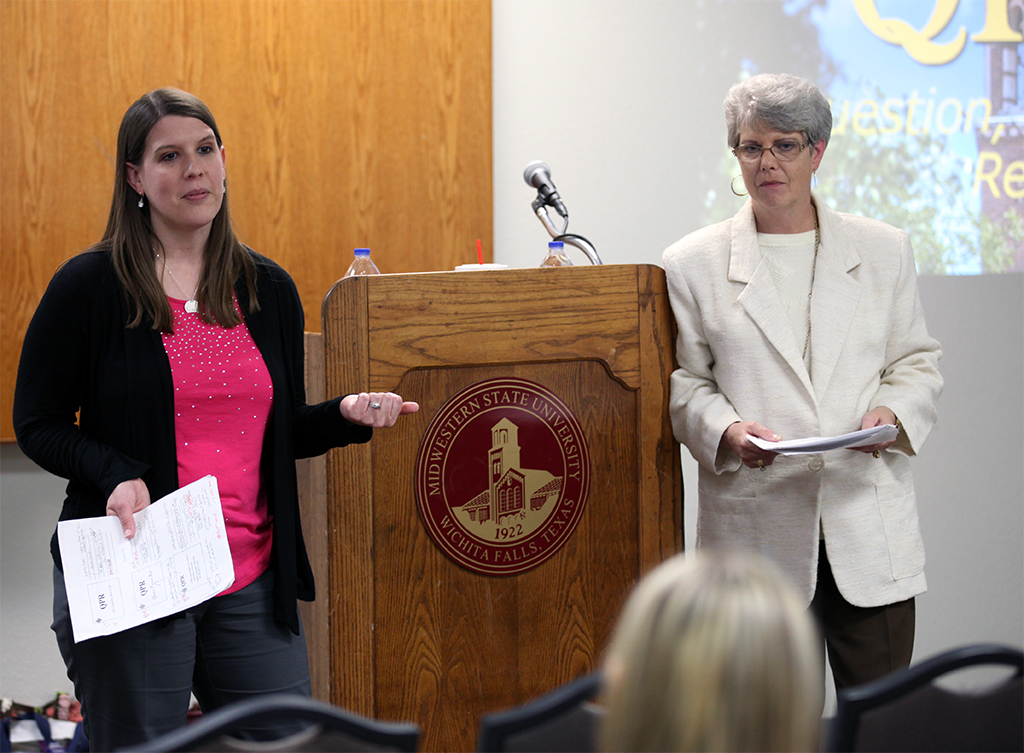
As part of suicide prevention week on campus, the counseling center offered Question, Persuade, Refer sessions to teach various groups on how to respond to a person who might have suicidal thoughts.
The counseling center staff provides about 10 to 15 QPR sessions during a school year.
On Sept. 15, the counseling will offer the QPR training to students in the Sundance 3rd floor meeting room from 2:30 p.m. to 3:30 p.m.
“I want them to learn some of the warning signs of a person who might be thinking about suicide,” Lori Arnold, licensed professional counselor and suicide prevention coordinator, said.
Arnold added that she would also like students to have the confidence to reach out to someone who they might feel needs help, noting that the second leading cause of death for 18 to 25-year-olds is suicide.
“I want to further my knowledge of helping people in that situation,” Kaelen Dohme, nursing freshman, said. “I have talked people out of committing suicide, but I want to learn to be more effective.”
Dohme added that when she helped her friend, she didn’t know if she was doing the right thing.
“The only reason I knew what to do was because of my mom, who is a nurse,” Dohme said. “If it wasn’t for her I wouldn’t have known how to guide my friend.”
On Sept. 13 the counseling center held QPR training for faculty and staff. About 15 faculty and staff attended the training.
“The faculty and staff that attended seemed to really care and have this drive and motivation to learn as much as they can to be able to help students and anyone else who might be experiencing suicidal thoughts,” Arnold said. “I admire anyone who takes time out of their already busy schedule to make suicide prevention a priority.
Elizabeth Lewandowski, theater chair, mentioned that the statistics stood out to her during her training.
“It reinforced my knowledge that often all it takes to prevent a suicide, or suicide attempt, is a personal contact from someone who expresses concern,” Lewandowski said.
Lewandowski added that this was her first QPR session, but she has dealt with students and family members having suicidal thoughts in the past and noted that often times, she refers students to the counseling center.
“Everybody has a story,” Lewandowski said. “And if a student is repeatedly withdrawn in class or grumpy, there is something going on. Reaching out can help.”














